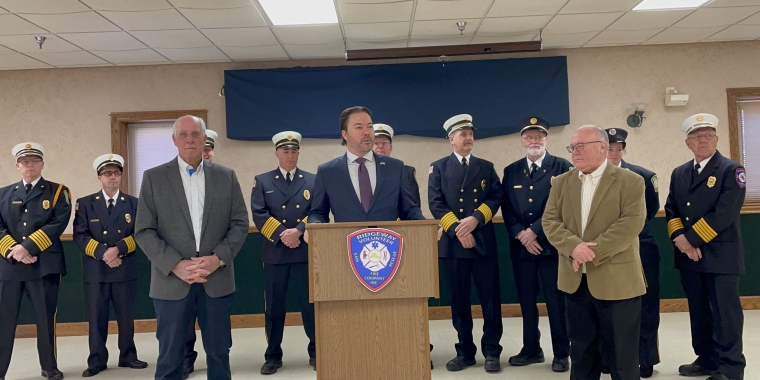
Ortt, State Senate Majority Call for Reforms to Workers’ Compensation in Final Budget
Antoinette DelBel
March 22, 2017

State Senator Rob Ortt (R,C,I – North Tonawanda) today joined members of the Senate Republican Majority to reinforce their push to include common-sense workers’ compensation reforms in the final state budget, expected to be adopted by April 1.
The proposal, recently advanced in the Senate Majority’s one-house budget plan, would bring down the cost of workers’ compensation, and improve the system to adequately benefit injured workers, small businesses, family farms, municipalities and not-for-profits. As a result, it would be more affordable to do business in New York, create jobs, spur economic development and provide significant cost savings for municipalities and school districts.
Senator Ortt said, “If we’re truly serious about keeping jobs and businesses here in New York, then a first and critical step must be addressing workers’ compensation. Not only is the status quo not helping workers, it’s strangling our small businesses, school districts, and local governments. As a former mayor, I can attest to the swelling and unsustainable costs that workers comp places on employers. That’s why I so strongly believe that reforming our inadequate workers’ compensation system must be a priority in this year's budget negotiations.”
New York pays the third highest workers’ compensation rates in the nation, contributing to a less competitive business climate and placing an additional burden on struggling municipalities, school districts, and not-for-profits.
The workers’ compensation reforms include updates to duration caps and schedule loss of use awards. Additionally, changes put into place would reduce frictional costs, streamline forms, improve independent medical examinations and require implementation of a prescription drug formulary by December 31. 2017.
Measures would also ensure fairness and offer protections to injured workers including: ensuring prompt access to quality medical care and lost wage benefits, enhanced incentives for workplace safety programs, and implementation of a more efficient hearing process.
Share this Article or Press Release
Newsroom
Go to Newsroom


